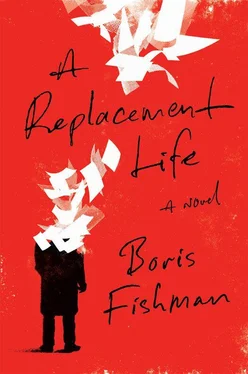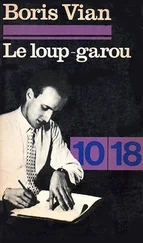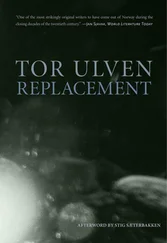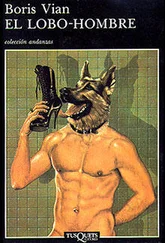Inside, the hallway to the viewing area, carpeted in a disco mix of abstract zigzags and dashes, was lined with human-height flora, birds of paradise and hot-pink anemones sutured into vertical displays that gave the room the feel of a science fair. Valery Grusheff, cuff links and a pocket square, shuttled among the gathering mourners.
These looked made up for a scene ten years later — dumplings swam under their eyes and tires circled their waists. Grandfather, looking deranged but credibly in grief in an overcoat despite the stifling weather, stood off in the corner cursing them under his breath. In the Soviet Union — where his officially paltry position as a barber at the main train terminal actually left him at the welcome gate of all the commerce that streamed into Minsk on the overnight trains from Moscow, Kishinev, and Yerevan — he had obtained for these people watermelons, cognac, wall units, visas. When the need arose, they had found his phone number easily. But democratic America had empowered them to secure their own watermelons and doctors’ appointments. Now he always had to call such-and-such person first, only to be invited for leftovers the day after a party to which he had not been invited. He was not counting, but where was their gratitude? They would never see his ass in their chairs again.
The individuals in question greeted Slava’s mother with the exaggerated intimacy of people who had not seen her in years.
“She is in the skies.”—“Be strong for your father.”—“It’s easier for her now.”—“Be strong for your son.”
On a metal folding chair in a corner, Slava’s father pulled at the collar of his shirt, looking as unclaimed as a child in front of a school at dusk. He was present but unnoticeable, his favorite setting. He hadn’t even objected when Slava had been given the last name of Grandfather’s line instead of his own.
“Yevgeny Isakovich,” a man called out to Grandfather. The summoned looked up and nodded ponderously, grateful to be pulled away from the stream of condolences. His eyes went searching the room. Somehow, Slava knew they were searching for him. When they found him, Grandfather tweaked his eyebrows. As Slava approached, Grandfather extended his arm, and Slava took it.
“My condolences, from the bottom,” the man said to Grandfather, covering his heart with his palm. He wore a leather jacket, the lined face of a bricklayer cinched by a short ponytail. A tiny gold hoop roosted in one of the ears. He reached out a grate of hairy knuckles and collected Grandfather’s limp palm.
“Thank you, Rudik, thanks,” Grandfather said.
“Are you looking?” the man said.
“Yes, yes,” Grandfather said. “We need.”
“Step into the office?”
“This is my grandson,” Grandfather said, turning to Slava.
“Rudolf Kozlovich.” The man extended his hand. “What do you—”
“He’s studying, still,” Grandfather said. “At Harvard.”
In the office, Kozlovich unfurled a bluish map of Lincoln Cemetery. It was a small city with avenues and streets named after trees — Walnut, Maple, Ash. A wide thoroughfare ran through the middle, the train thundering above.
“Nothing by the fence,” Grandfather said.
“They’ve got synthetic lawn on it now,” Kozlovich said. “Like that stuff they put on the soccer field. You can’t see in.”
“Nothing by the fence,” Grandfather repeated.
Kozlovich’s finger traced a line to the other half of the grounds. “The head office is on this side.”
“That means what?”
“The grounds crew checks in there. More people around. Downside is — not too far from the train, either.”
“Where is the quietest?”
“Quiet’s over here.” Kozlovich slid his finger across hundreds of graves. “They’re building new condominiums on that side, but that’s practically over. Tulip Lane.”
“She loved tulips,” Grandfather said.
Kozlovich opened his hands. “Meant to be.”
Rudolf Kozlovich was known. He had come from Odessa in 1977 or 1978. He looked around and settled on a plan. One day he and some hired boys hijacked a truck of Macy’s furs. Sable, mink, fox. They returned them one by one at the branch stores, just a lot of husbands coming back with unsuccessful gifts. They were done, over a hundred thousand dollars between them, before the store could piece together what had happened. With his one hundred thousand, Rudolf purchased one hundred choice plots at the cemetery under the el.
There he was at the hospital, at the funeral home. He had an information network — oncologists, nurses, funeral-home directors — that Macy’s security could only envy. Kozlovich’s business was unofficial, of course, spread among different owners who collected small percentages for the use of their names in the contracts, and the cemetery continued to own some of the plots. But Kozlovich’s were the rarest, and as fewer of them remained, the prices went up.
Kozlovich was on a clock, too. His son Vlad had come out of the closet, renounced his father’s money, and moved with his homosexual partner to Madrid. There, Vlad had reconsidered and agreed to live off Papa’s funds, which Rudolf supplied without objection — when it came to children, his wolfhound instincts went flaccid. But there was no question of Vlad returning to assume any part of his father’s burial empire, and Rudolf’s ex-wife, the former Tatiana Kozlovich, had absconded to Westchester with a derivatives trader who made her former husband seem like a wage worker. Rudolf was alone.
“I want two,” Grandfather said now.
“Yevgeny Isakovich.” Kozlovich’s eyebrows rose. “A plot in advance? You’re tempting fate.”
“Well, that’s what I want,” Grandfather said.
“All right, but I have only four of those left. One family plot and four doubles. The rest is all singles.”
“So give me one of the doubles.”
“Happily. Twenty thousand.”
“Fifteen,” Grandfather said. “I’m buying two in one go.”
“Yevgeny Isakovich,” Kozlovich frowned. “I’m sorry for your loss. But you know I don’t bargain.”
“Fifteen and — your son is in Europe?”
Kozlovich’s face changed expression. “Connection?” he said impatiently.
“Exactly, Rudik,” Grandfather said, his index finger rising tutorially into the refrigerated air of the office. “Connection. Why are we here? For them.” He poked a nail into Slava’s chest. “If this one said, ‘I want Europe,’ I would build the airplane myself. That’s the kind of grandfather I am. But you miss your boy? Exactly. So I am making you an offer. A special kind of telephone. You pick up the receiver and it’s already ringing in Paris.”
“Madrid.”
“Wherever. A special connection just for you and your son. These things, probably the only one who’s got one is Bush. And not that money is an issue for a person such as yourself, but: no charge.”
“A walkie-talkie,” Kozlovich said. “With international range.”
“Exactly. The newest thing.”
“And where did you get such a thing?”
“Rudik,” Grandfather said. Briefly, the sear of grief was gone from his face. His eyes gleamed. “A girl doesn’t tell who she’s kissed. It’s authentic, that’s all you need to know. The Japanese navy uses it, or something like that.”
When the Gelmans reached the United States, Grandfather had found a “warm” fellow who knew where the trucks from Crazy Eddie’s unloaded. The models of the electronics Grandfather obtained — microwaves, dishwashers, floppy disks — were so new and advanced that no one in the family could understand how to use them. Grandfather screamed into his Pentagon-caliber cordless as if it were a can connected to Slava’s wall by a string. But he could obtain a Japanese navy international-range walkie-talkie in the time it took Slava to find a newspaper.
Читать дальше











